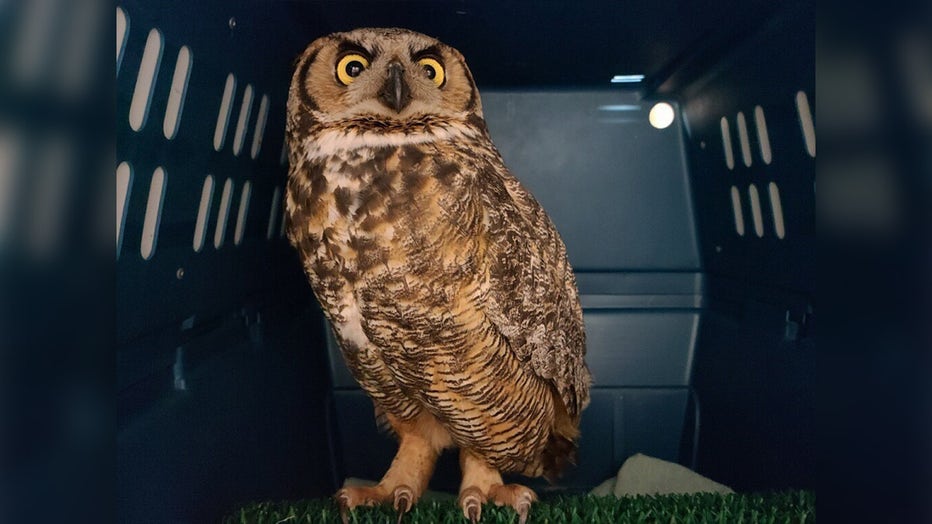Wildlife rehab center encourages people to bring in sick birds
ROSEVILLE, Minn. (FOX 9) - A crow, a mallard duck and a hooded merganser – those are just a handful of the bird flu cases the Wildlife Rehabilitation Center in Roseville has seen over the last few weeks.
Medical Director Dr. Renee Schott says 70 percent of the birds WRC staff is treating are testing positive for avian influenza. The classic signs and symptoms of the virus are neurological.
"You’ll tend to see the animals off balance, not walking well, sometimes a crooked neck or their neck in a weird position," Schott told FOX 9.
From March 28 through May 1, 2022, the Raptor Center had tested 188 birds on entry to its center. Results included 114 positive cases, 67 negatives and seven pending. Of those infected, the leading species included 54 great horned owls, 28 bald eagles and 18 red-tailed hawks.
Dr. Schott says the cases of bird flu detected at high rates in great horned owls and bald eagles could be because these raptors feed on smaller birds.
"A duck dies with it and then a raptor feeds on that carcass or a crow goes and feeds on the side of the road that has it," Schott said.

Champion, a great horned owl, has been a rare survivor of the avian flu spreading through Minnesota.
She’s now encouraging people to bring in birds exhibiting the signs of the virus to the center to curb further spread.
"If you see a bird that’s exhibiting those signs and symptoms and it’s a bird that you will be able to capture, you certainly can. You want to make sure you prepare yourself first because this virus can jump to humans," Schott said.
Schott advises to wear disposable gloves and an N-95 mask before picking up the bird with a towel. Place the bird in a cardboard box, tape it shut and bring the bird to the center’s outdoor triage area.
"Make sure on the car ride over you are still wearing your mask because that bird is still breathing in that box," Schott said.
But in the midst of all of this grim news regarding bird flu, there is a small glimmer of hope.
The University of Minnesota’s Raptor Center says of the dozens of fatal cases they have seen this year, they had one patient test positive and beat the virus.
Champion, a female great horned owl, was released back into the wild on Tuesday.
"This is a very rare occurrence. We know about 90 to 100 percent of raptors who get it do die from this virus… In a crazy time that’s really challenging; she sure is a bright spot that we are very excited about," Dr. Victoria Hall, the Executive Director at the Raptor Center said.

